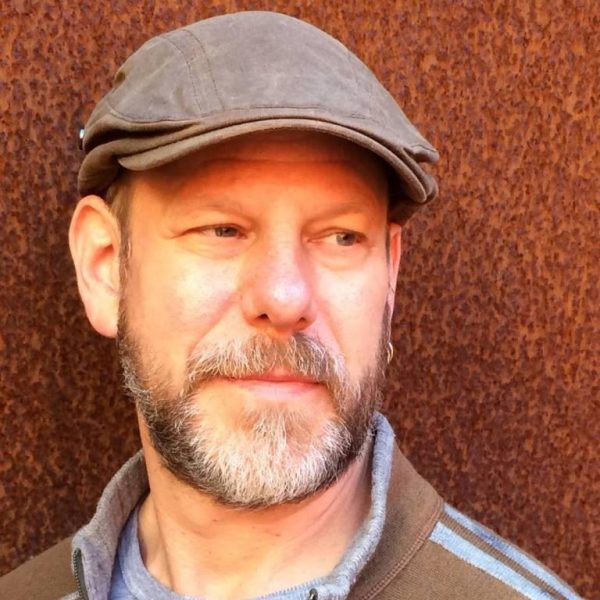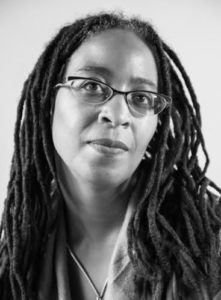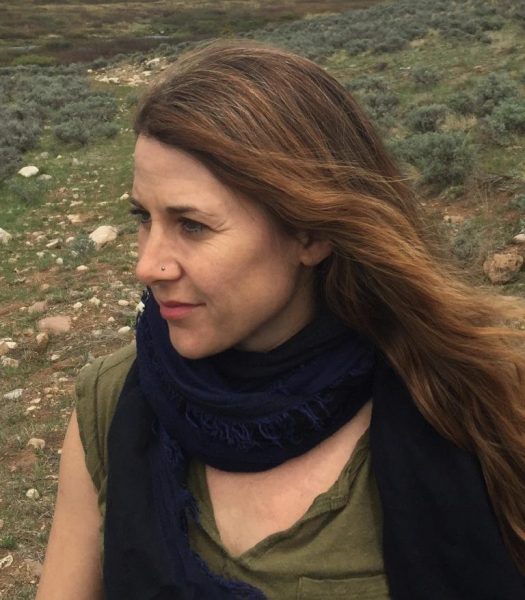As part of our celebration of National Poetry Month, we sent out an email to the English department and asked them a single question: “What is your favorite poem, and/or who is your favorite poet, and why?” In this edition is a special set of answers, from our very own English department “Professor Poets”: Dan Beachy-Quick, Matthew Cooperman, Camille Dungy, and Sasha Steensen.
 Dan Beachy-Quick answered: “Sometimes those simple questions are the hardest—I don’t know who my favorite poet is, or what my favorite poem is…I’m not sure I can really answer the question in any meaningful way…but I’ll think on it.” He’s still thinking about it, so in the meantime, read this post where he says some other things about poetry, like why it matters. Interestingly, we asked him back then what poem, poet, or poetry collection was his favorite and he answered, “It makes the other books mad if you answer this question. & the dead. Which isn’t good.”
Dan Beachy-Quick answered: “Sometimes those simple questions are the hardest—I don’t know who my favorite poet is, or what my favorite poem is…I’m not sure I can really answer the question in any meaningful way…but I’ll think on it.” He’s still thinking about it, so in the meantime, read this post where he says some other things about poetry, like why it matters. Interestingly, we asked him back then what poem, poet, or poetry collection was his favorite and he answered, “It makes the other books mad if you answer this question. & the dead. Which isn’t good.”
Matthew Cooperman said: What is your favorite poem?; and who is your favorite poet? Two supremely difficult questions given the richness of the field, as it were. To the former, I’d have to say Hart Crane’s “Chaplinesque.” I first encountered Hart Crane’s “Chaplinesque” in a sophomore English class at Colgate University, a class called, elegantly enough, “The Whitman Tradition,” with something like five people, and our mentor, the recent Pulitzer-prize winner poet, Peter Balakian (Ozone Journal, University of Chicago, 2015). The poem was both an opening salvo to a life in poetry, and a heady introduction to the oracular strain of lyric poetry in America.
And, while “Chaplinesque” is tragic and visionary, it’s also playful and subversive, the mischief of poetry, homosexual pivot as a stick in the eye to heteronormative constructions of power. This is the strange duality of the poem; Crane’s narrative evokes Chaplin, City Lights resistance to “the man,” but also something profoundly universal and empathetic, the agency of poetry itself. In other words “we” work hard, poetry works hard. I continue to buy the resistance.
As to my favorite poet, I would have to say the pivotal mid-century American poet Charles Olson. From Olson I learned not only of the breadth of poetry, but the breadth of the cosmos itself. That sounds pretty inflated, but Olson’s poetics, particularly in The Maximus Poems, are interested in everything from non-Euclidian geometry to plate tectonics and the the geologic origins of Gondwanaland to Algonquin creation myths to the history of cod fishing in New England. In other words, everything is available for the poem, via Olson. That scale and ambition has served my understanding of poetry well.
 Camille Dungy responded: “wont you celebrate with me” by Lucille Clifton.
Camille Dungy responded: “wont you celebrate with me” by Lucille Clifton.
The “and why” part of your question is harder to answer. Why: Because I love everything about everything about everything about Lucille Clifton. And because the poem speaks a kind of truth that resonates deeply with me. And because once, in 2013, when I was sharing poems in Namibia with a group of black Namibians who had only been legally allowed to read since 1993 when South African apartheid was no longer the rule of law in then-South African-controlled Namibia, I read the poem and everyone in the room stopped breathing. Because there was a community in their vicinity called babylon, where many of the people who were gathered in the room lived, and it was as if Lucille Clifton was speaking directly to them. Which she was. Because she always is. Which is why I love her so dearly and madly and deeply.

Sasha Steensen said: Emily Dickinson because, as another favorite poet (Susan Howe) once write, Dickinson’s poems “are outside the realm of specific solution.”